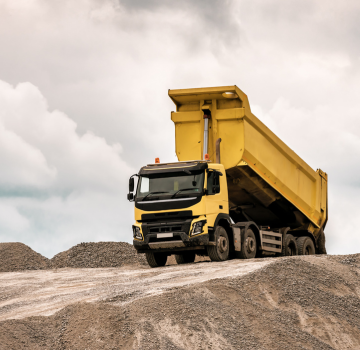In the world of construction, transportation, and logistics, the role of tipper trucks cannot be overstated. These versatile vehicles are indispensable for moving heavy loads efficiently and safely. However, acquiring brand-new tipper trucks can strain budgets, making second-hand options an attractive proposition. The nuances of second hand tipper truck for sale offer insights to ensure you find the perfect match between quality, reliability, and affordability.
Understanding Second-Hand Tipper Trucks
Before diving into the buying process, it’s essential to understand what exactly constitutes a second-hand tipper truck. These vehicles, also known as dump trucks, have been previously owned and operated. While this might raise concerns about reliability and performance, it’s crucial to recognize that many second-hand tipper trucks are well-maintained and capable of delivering years of service. The key lies in knowing what to look for during the selection process.
Factors to Consider Before Buying
- Condition Assessment: Prioritize a thorough inspection of the truck’s mechanical components, including the engine, transmission, suspension, and brakes. Look for signs of wear and tear, rust, or any structural damage that could compromise safety and performance.
- Maintenance Records: Request maintenance records from the seller to gain insights into the truck’s service history. Regular maintenance indicates that the vehicle has been cared for, potentially minimizing the risk of unexpected breakdowns.
- Mileage and Usage: Consider the truck’s mileage and usage patterns. Higher mileage doesn’t necessarily equate to poor condition, especially if the truck has been primarily used for highway driving rather than off-road construction sites.
- Tipper Mechanism: Evaluate the functionality of the tipper mechanism, ensuring smooth operation without leaks or malfunctions. Test the hydraulics thoroughly to confirm that they can handle the intended workload.
- Legal Compliance: Verify that the truck complies with all relevant safety and emissions regulations. Ensure that the necessary paperwork, including registration and insurance documents, is in order.
Benefits of Buying Second-Hand
- Cost-Effectiveness: Second-hand tipper trucks typically come with a significantly lower price tag compared to their brand-new counterparts. This allows businesses to allocate their budgets more efficiently, freeing up capital for other essential expenses.
- Depreciation Mitigation: Unlike new vehicles that experience rapid depreciation during the initial years of ownership, Second hand tipper for sale have already undergone much of this depreciation. As a result, the rate of depreciation tends to be slower, providing better long-term value retention.
- Immediate Availability: While ordering a new tipper truck might entail waiting for manufacturing and delivery, second-hand options are readily available for purchase. This means businesses can quickly add vehicles to their fleet without experiencing downtime.
- Customization Potential: Some second-hand tipper trucks may already come equipped with aftermarket upgrades or modifications, such as reinforced suspension or larger capacity beds. This can provide additional value for businesses seeking specific features without the added expense of customization.
Mitigating Risks
- Warranty Options: Investigate whether the seller offers any warranty or guarantee on the vehicle. While second-hand purchases typically don’t come with manufacturer warranties, some dealerships or private sellers may offer limited coverage for certain components.
- Professional Inspection: When you’re uncertain about assessing the condition of a tipper truck yourself, consider hiring a qualified mechanic or technician to conduct a thorough inspection. Their expertise can help identify potential issues that might otherwise go unnoticed.
- Vehicle History Report: Obtain a comprehensive vehicle history report to uncover any past accidents, title issues, or other red flags that could impact the truck’s reliability and resale value. Services like Carfax or AutoCheck provide detailed reports based on the truck’s VIN.
Conclusion
Purchasing a second-hand tipper truck requires careful consideration and due diligence to ensure you’re investing in a reliable and cost-effective vehicle. By thoroughly assessing the truck’s condition, maintenance history, and overall value proposition, businesses can make informed decisions that align with their operational needs and budgetary constraints. With the right approach, second-hand tipper trucks offer an opportunity to maximize efficiency and productivity without breaking the bank.











